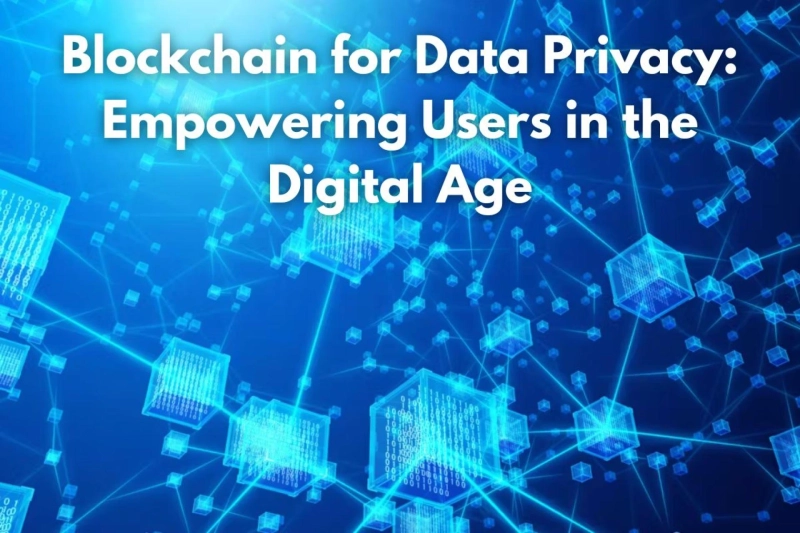In an era dominated by digital interactions and data-driven decisions, concerns about data privacy have taken center stage. The exponential growth of online activities and the continuous collection of personal information have raised questions about how individuals can regain control over their data. Enter blockchain technology—a decentralized and tamper-resistant ledger that holds the potential to revolutionize data privacy in the digital age. In this exploration, we delve into the intersection of blockchain and data privacy, examining how this innovative technology empowers users and transforms the landscape of digital information security.
I. Understanding the Data Privacy Challenge:
1. The Proliferation of Personal Data:
The digital landscape thrives on the exchange of personal data. From online purchases and social media interactions to healthcare records and financial transactions, individuals constantly generate vast amounts of data. This proliferation raises concerns about the security and privacy of this information.
2. Centralized Data Storage:
Traditional approaches to data storage often involve centralized servers controlled by entities such as corporations or government agencies. This centralized model makes data vulnerable to breaches, hacking, and misuse. Individuals are left with limited control over how their data is handled and shared.
II. The Promise of Blockchain in Data Privacy:
1. Decentralization and Distributed Ledger:
At the core of blockchain's impact on data privacy is its decentralized nature. Unlike centralized databases, blockchain operates on a distributed ledger, where data is stored across a network of nodes. This decentralization minimizes the risk of a single point of failure and ensures that no single entity has unilateral control over the data.
2. Immutable and Tamper-Resistant Records:
Blockchain's design makes it resistant to tampering. Once data is recorded on the blockchain, it becomes part of a secure and unchangeable ledger. This feature ensures the integrity of the information, providing a transparent and verifiable history of data transactions.
III. Empowering Users Through Blockchain:
1. User Consent and Ownership:
Blockchain enables a paradigm shift in how user consent and data ownership are managed. Through smart contracts—a self-executing code on the blockchain—users can define the terms under which their data is accessed or shared. This puts individuals in control, allowing them to grant or revoke access to their data on their terms.
2. Anonymity and Pseudonymity:
Blockchain supports a level of anonymity and pseudonymity, where users can participate in transactions without revealing their real identities. This feature enhances privacy, particularly in applications where individuals want to engage without disclosing sensitive information.
IV. Blockchain Solutions for Data Privacy:
1. Zero-Knowledge Proofs:
Zero-knowledge proofs, a cryptographic technique, play a crucial role in blockchain's approach to privacy. This concept allows one party (the prover) to prove the authenticity of certain information to another party (the verifier) without revealing the actual data. This enables secure and private transactions on the blockchain.
2. Decentralized Identity Solutions:
Blockchain facilitates the development of decentralized identity solutions. Individuals can control and manage their digital identities on the blockchain, reducing reliance on centralized identity providers. This not only enhances privacy but also mitigates the risks associated with identity theft.
V. Challenges and Considerations:
1. Scalability Concerns:
Despite its promises, blockchain faces scalability challenges that need to be addressed for widespread adoption in data privacy applications. As more users join the network, the scalability of blockchain platforms becomes crucial for maintaining efficiency.
2. Regulatory Landscape:
The regulatory environment around blockchain and data privacy is still evolving. Compliance with existing regulations, such as the General Data Protection Regulation (GDPR), and the development of new frameworks are essential for ensuring a legal and ethical approach to blockchain-based data privacy solutions.
VI. Real-world Applications:
1. Healthcare Data Management:
In the healthcare sector, where sensitive patient data is abundant, blockchain offers solutions for secure and interoperable data management. Patients can have granular control over who accesses their medical records, ensuring privacy while facilitating collaborative healthcare efforts.
2. Supply Chain Transparency:
Blockchain's transparency and immutability make it ideal for enhancing supply chain transparency. Individuals can trace the journey of products from manufacturing to delivery without compromising sensitive business data.
VII. Future Perspectives:
1. Interoperability and Standardization:
The future of blockchain in data privacy involves efforts towards interoperability and standardization. Creating common standards will facilitate seamless integration with existing systems and enhance the interoperability of blockchain solutions across various domains.
2. Continued Innovation:
As blockchain technology evolves, continued innovation will lead to more sophisticated solutions for data privacy. From advanced consensus mechanisms to improved privacy-focused cryptographic techniques, ongoing research and development will shape the future landscape of blockchain and data privacy.
Conclusion: A New Era for Data Privacy
The intersection of blockchain and data privacy marks the dawn of a new era where individuals regain control over their digital lives. Blockchain's decentralization, immutability, and user-centric design present a powerful solution to the challenges posed by the current data privacy landscape. As technology continues to advance, the integration of blockchain into various sectors promises not only enhanced privacy but also a fundamental shift in how we perceive and protect our digital identities. The empowerment of users through blockchain is a beacon guiding us towards a future where privacy is not just a right but a reality in the digital age.


